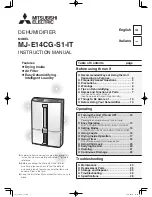
en GB – 34
DreamStar Intro, Info, Auto patient manual
Troubleshooting
Helpful hints
Problem
Possible cause
Suggestion
Your nose is cold.
The room temperature is
too low.
The delivered air is too
cold.
Raise the room temperature.
Place patient circuit under a cover and run next to
your body to reduce heat loss.
Runny nose.
Reaction to air flow and
to pressure levels.
Contact your medical technical team or your
attending physician.
Nose or throat is dry or
irritated.
The air is too dry.
There is no water in the
water chamber (if
included).
Use the humidification feature if your device is
equipped with a water chamber. Increase the heat
level by following the instructions in the parameter
settings procedure of the corresponding device.
Check the water level in the water chamber. If
necessary, raise the water level following the
instructions under “Filling the water chamber (if
included)”, on page 10.
Nose, sinus or ear pain.
Sinus infection or nasal
congestion.
Contact the attending physician immediately.
Redness of skin in contact
with the mask.
Possible pressure sores
indicating the headgear is
too tight or the size is too
small.
Allergic reaction to mask
components.
Adjust the headgear. Contact the attending
physician or home care provider to try another size
mask.
Stop using the mask. Contact the attending physician
or home care provider.
Dry or irritated eyes.
Air leakage around the
mask.
Reposition the mask. Ask the attending physician or
home care provider to try another size mask.
The air delivered by the
device is too hot.
Air intake filters may be
dirty. Air intake is
clogged.
Room temperature is too
high.
Clean or replace filters as necessary (see “Cleaning
and Maintenance”, on page 31). Move away from all
bedclothes and clothing.
Lower the room temperature. Make sure that the
DreamStar product range device is well away from
any source of heat. Remove patient circuit from
under the cover.
Discomfort from feeling
that the pressure is too
high.
Device pressure.
The DreamStar™ Auto /
Auto Evolve device is set
to Auto-CPAP mode.
Getting use to the nasal pressure takes some time.
Use the pressure ramp when you go to sleep (see
"Ramp feature”, on page 10). Relax and breathe
slowly through the nose.
If the pressure delivered by the device seems to
have changed, contact the home care provider to
have the device pressure checked.
The pressure may vary during use. If you are
dissatisfied with the pressure, ask your home care
provider to check the device.
Summary of Contents for DreamStar Auto
Page 40: ...en GB 40 DreamStar Intro Info Auto patient manual ...
Page 41: ......









































